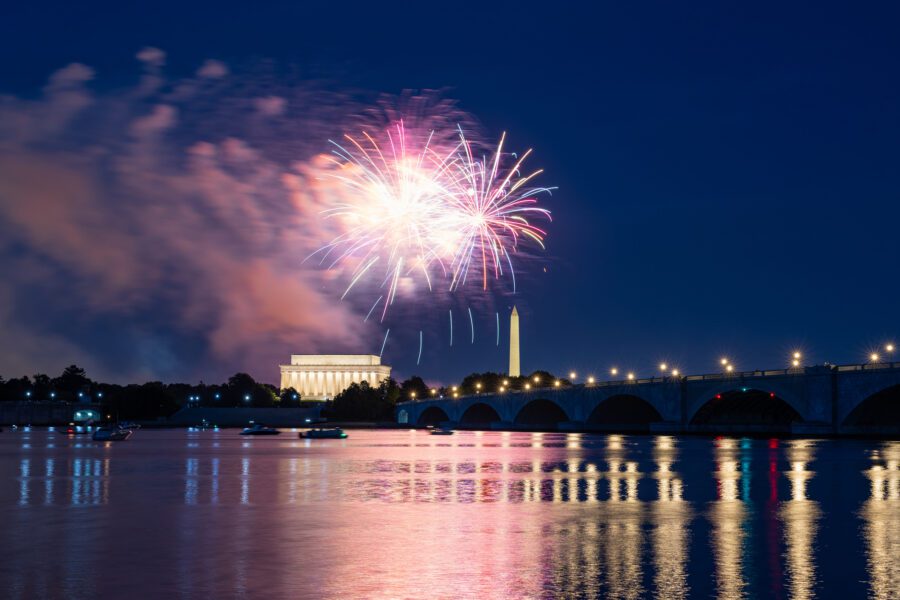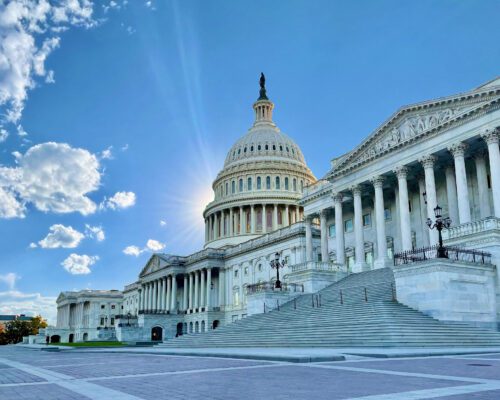In two years, America will celebrate 250 years of independence. Anniversaries like this are important because they represent significant milestones and are natural opportunities for a shared experience across the nation which are increasingly rare in our fractured culture.
Much like Victory in Europe Day in World World II or the Moon landing, the summer of 2026 will provide a moment of appreciation for the founding principles that propelled the birth of this nation, a time to reflect on America’s place in the world after two and a half centuries of existence, and a natural period to dream about the direction of this grand American experiment. Studies and survey results reveal how desperately we need a moment of national unity.
Reflecting on our current moment
Religious affiliation and church attendance are dropping. College-aged individuals are dealing with record high rates of anxiety and unhappiness. Americans have consistently registered dissatisfaction with the direction of the country for years now and are fearful that the future will be worse for coming generations. Even the phrase “proud to be an American” has a record low number of people who strongly identify with that sentiment. Those perspectives are certainly understandable as we take stock of our current moment marking America’s 248th Independence Day.
Just last week, we witnessed a presidential debate that may very well have been the low point of American political discourse. It was a discouraging spectacle that seemed more rooted in the past than what is to come. Viewers were rightly left asking a number of questions. Among them:
- Where is the vision for America’s next four years?
- How will America meet the growing challenges at home and abroad?
- Does anyone want to carry the mantle of champion for the right to life?
- Is this the best leadership we have?
The moment confirmed why polls in the spring had upwards of 70% of Americans saying they did not want a repeat of the 2020 election.
As discouraging as the debate was, it also revealed something more alarming: Our current president was in a clearly diminished state. Whether temporary or routine, the fact that it was so plainly on display for all Americans has understandably caused waves in the political world.
But my thoughts went elsewhere, to something more immediate than the November election. Is this affecting the day-to-day governance of our nation, particularly the national security of America? Our allies watched that performance. So did our enemies. That should trouble all of us.
The White House sought to reassure the public by asserting the president is alert and “dependably engaged” between the hours of 10 a.m.– 4 p.m. This was stated as if China would only consider attacking Taiwan inside that window or that terrorists would never conceive of an early-morning or late-night attack on U.S. soil.
The demands of the presidency
Everyone understands the role of president of the United States is massive and consequential. The office itself is much more powerful than our Founders envisioned. The far-reaching powers of the administrative state it currently helms were nearly unimaginable 250 years ago (though, on June 28, 2024, the Supreme Court thankfully took a significant step in reining it in by striking down Chevron deference in its Loper decision).
The issues before the president can be matters of life or death. That individual has the ability to sway markets with one tweet or command the attention of the world with one speech. To think that the state President Biden was in last Thursday night––a state that too many of us have seen with aging loved ones—might even be an occasional reality inside the White House stirs mixed emotions of sadness, empathy, and frustration.
Looking to history, a few examples are worth examining, though none are directly analogous to our current moment.
- President Woodrow Wilson was incapacitated with a stroke in the fall of 1919. One report characterizes the conclusion of his term as a “bedside government,” raising significant constitutional questions.
- In 1968, President Lyndon Johnson, who presided over multiple achievements in his time as chief executive, decided against seeking a second term because of deep unpopularity, despite it being well into an election year.
- More recently, President Ronald Reagan, after a tenure of immense significance for the country, revealed an Alzheimer’s diagnosis to the nation in 1994, several years after leaving office.
Obviously, the presidency wears an individual down. It is taxing, no matter the day or situation. Citizens have the expectation that individuals in that role will be able to endure or, should that not be the case, step aside. News reports suggest this is the conversation being had at 1600 Pennsylvania Avenue.
As Christians, we, of course, turn to Scripture. We are advised against putting our trust in princes or presidents, for our joy and hope come from the Lord (Ps. 146:3-5). Yet, even as we live with the certainty of that truth, we are told to pray for all those in authority (1 Tim. 2:1-2), even those with whom we disagree, those we intend to vote against, or those (like Caesar) who persecute us. We must be mindful of those verses at all times and ask for the kind of “pure” wisdom that comes from above (James 3). That is the kind of wisdom needed in the White House, for anyone seeking to lead our nation, and for us as we process the events of the moment.










